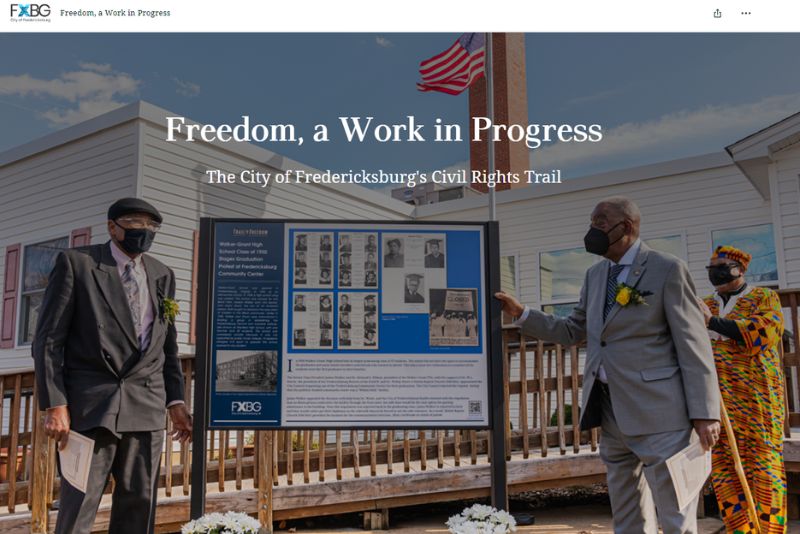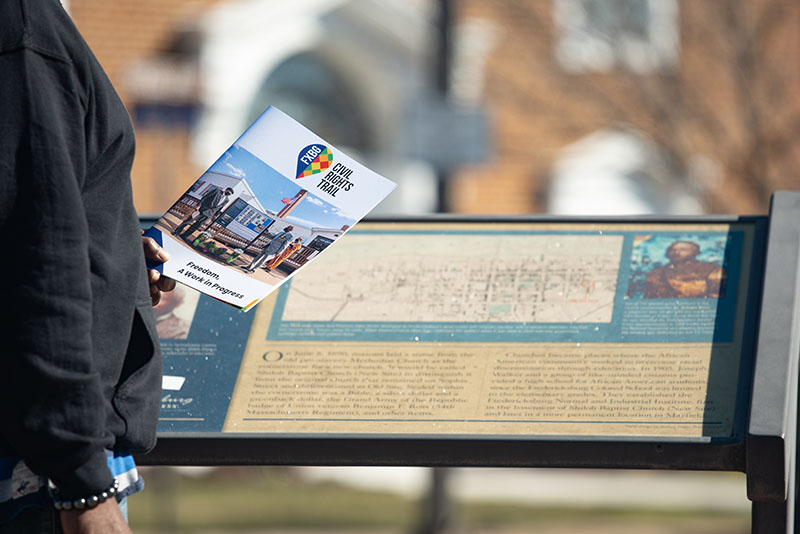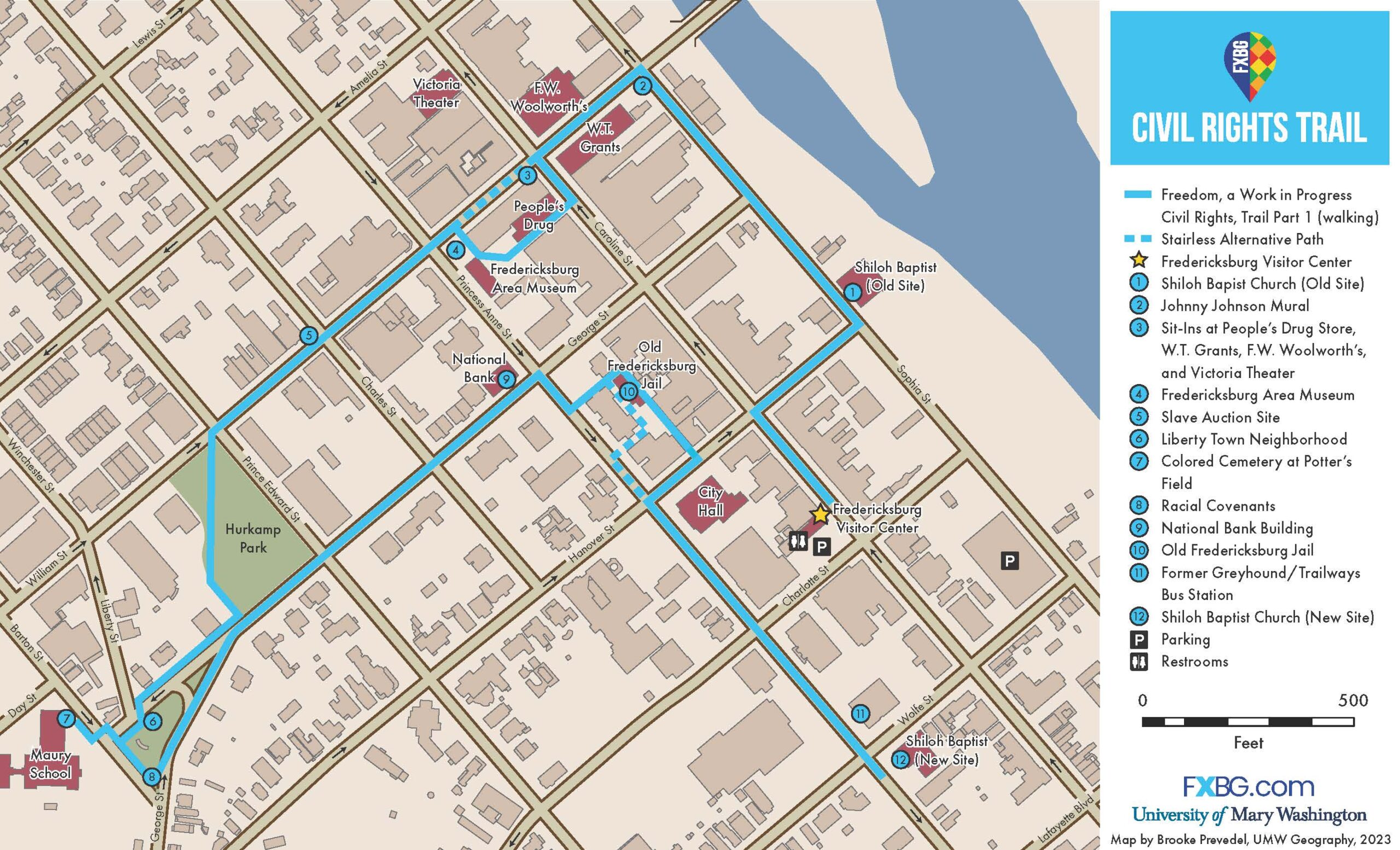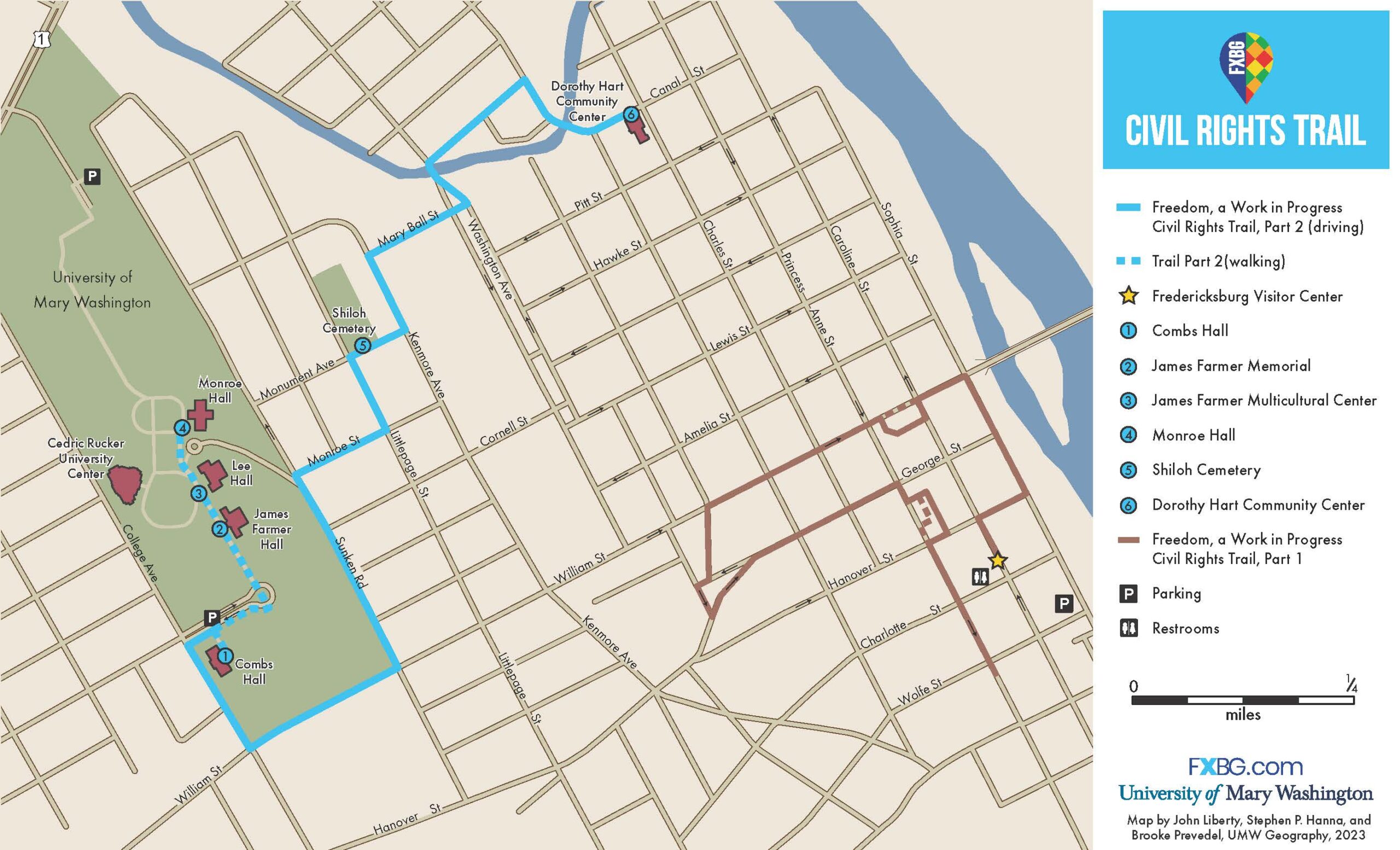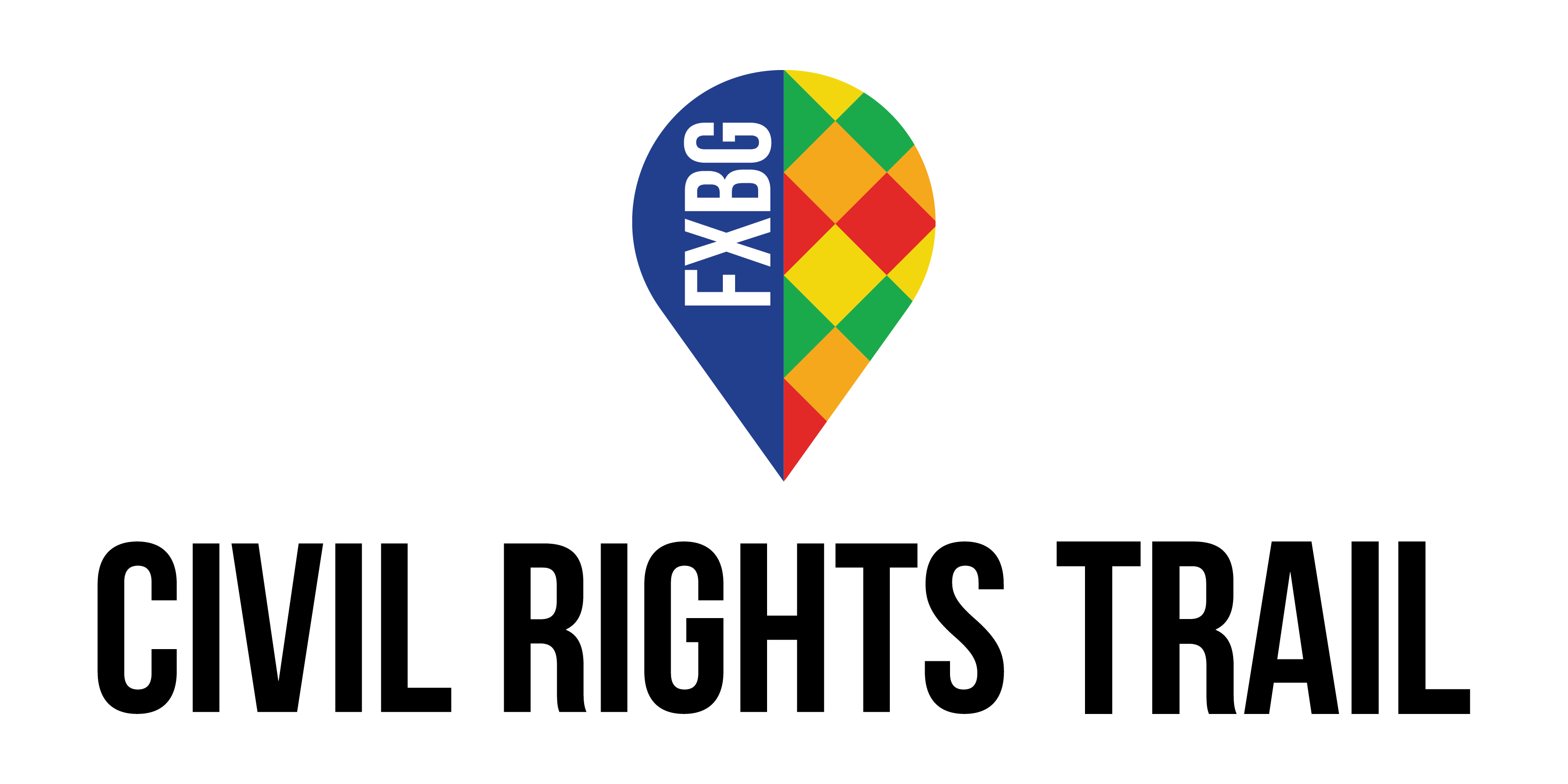
Fredericksburg Civil Rights Trail – Part of the US Civil Rights Trail
What is the Fredericksburg Civil Rights Trail?
The Fredericksburg Civil Rights Trail follows the stories and sites of the local Civil Rights movement and highlights the role of Black residents in Fredericksburg’s history.
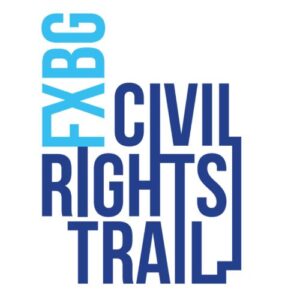 The trail was launched in 2023 and is the result of an ongoing partnership between the City of Fredericksburg, University of Mary Washington’s James Farmer Multicultural Center and the UMW faculty and students.
The trail was launched in 2023 and is the result of an ongoing partnership between the City of Fredericksburg, University of Mary Washington’s James Farmer Multicultural Center and the UMW faculty and students.
The trail is the culmination of years of research and collection of local oral histories. Sites of importance were determined from the oral histories and the trail was formed. During the trail development, six events were held commemorating the Freedom Riders, the 1950 Walker Grant Protest and John Washington. Three wayside panels, one history panel and two state markers were installed as well.
As February 8, 2024 the Fredericksburg Civil Rights Trail is part of the U.S. Civil Rights Trail.
Freedom, a Work in Progress
This story is not the final version. It will be updated as future stories and information are uncovered and brought forward.
Overview of the Fredericksburg Civil Rights Trail
Fredericksburg’s Civil Rights Trail has two parts.
Part 1 is a 2.6 mile walking tour through Fredericksburg’s historic downtown district that starts at the Fredericksburg Visitor Center.
Part 2 starts on the University of Mary Washington’s campus and includes stops at Shiloh Cemetery and the Dorothy Hart Community Center. Part 2 is .5 miles of walking on campus and 1.9 miles of driving.
Trail Stops and Stories
The trail’s 21 stops include stories of “persecution and peril, power and promise”.
Tour Timeline
The tour begins at the end of the Civil War in 1865. Fredericksburg’s location halfway between Richmond, the capital of the Confederacy, and Washington, DC, made it the site of intense fighting as Union and Confederate armies advanced and retreated. Enslaved Black people took advantage of the shifting lines to emancipate themselves.
This tour includes sites where Black people created educational, housing, and business opportunities in the midst of Jim Crow era segregation, as well as buildings where people protested racial segregation in the 1950s and 1960s. As in the rest of the United States, Fredericksburg’s Civil Rights history continues into the present and this tour includes sites associated with Black political leaders in the mid to late 20th century and the Black Lives Matter protests of 2020.
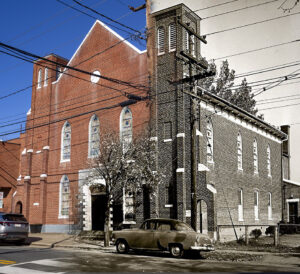 On the trail, visitors will:
On the trail, visitors will:
- Learn about the 13 Freedom Riders who’s first stop was in Fredericksburg
- Hear about Shiloh Baptist Church (Old Site) and Shiloh Baptist Church (New Site) role in the Civil Rights Movement
- Hear stories from Fredericksburg’s community about desegregating locals school, University of Mary Washington and the sit-in movement
- Learn about John Washington who escaped to freedom across the Rappahannock River to Union Army
- See Dr. James Farmer memorial at the University of Mary Washington, one of the big six in the Civil Rights Movement
- Hear the story of the Walker-Grant High School graduating Class of 1950 and why they protested the City of Fredericksburg
- Learn about Urbane Bass and his heroic efforts in World War I
How to Explore the Fredericksburg Civil Rights Trail
Part 1 of the trail starts at the Fredericksburg’s Visitor Center, where visitors can pick up a walking trail map of the Civil Rights Trail and review copies of the Negro Motorist Green Book. The Negro Motorist Green Book was a travel guide written by postal carrier Victor Hugo Green and remained in circulation from 1936 to 1968. It was used during segregation and informed Black travelers on which hotels, restaurants, and gas stations they could use without fear of violence.
The Visitor Center has public restrooms and staff can answer questions about Fredericksburg’s attractions and options for food and other accommodations.
Short term parking is available in the lot next to the Visitor Center. Visitors can also park in the Sophia Street Parking Garage, only two blocks away on the corner of Sophia and Wolfe streets.
About the US Civil Rights Trail
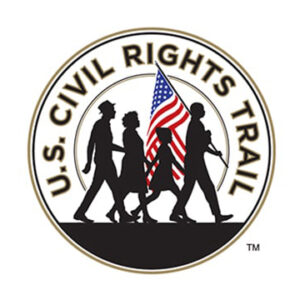
Featuring over 130 sites across more than 15 states, the United States Civil Rights Trail is a collection of churches, schools, museums, and other landmarks primarily in the Southern states, where activists challenged segregation in the 1950s and 1960s to advance social justice.

